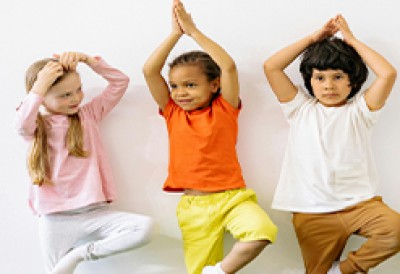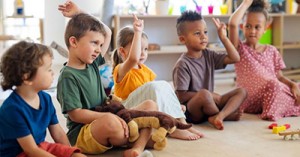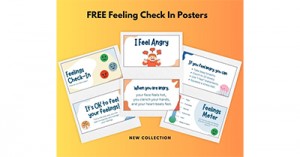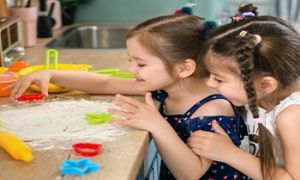Yoga games offer a treasure trove of benefits for kids—blending movement, mindfulness, and play in ways that support both body and mind. The following provides 20 Yoga Games For Preschoolers.
1. Yogi Says
A yoga twist on “Simon Says.” Call out poses like “Yogi says do Tree Pose!” If you don’t say “Yogi says,” they freeze. Great for listening skills and body awareness.
2. Animal Yoga Adventure
Invite children on a pretend journey through the jungle, ocean, or farm. As you narrate, they act out animals with poses—like Downward Dog for a puppy or Cobra for a snake.
3. Yoga Freeze Dance
Play music and let them dance freely. When the music stops, they freeze in a yoga pose. It’s a fun way to build balance and self-regulation.
4. Yoga Pose Bingo
Create bingo cards with simple poses. As you call out or demonstrate each one, children mark them off. The first to complete a row wins a calming breath together.
5. Tunnel Swim
Children crawl through tunnels like sea creatures, encouraging sensory exploration and freedom of movement.
6. Mirror, Mirror
One child leads with slow yoga poses while the others copy like a mirror. It builds focus, coordination, and empathy.
7. Yogi Yogi Go (like Duck Duck Goose)
Children sit in a circle. One walks around tapping heads saying “Yogi, yogi…” then shouts “Go!” and both race around the circle—ending in a yoga pose instead of a tag.
8. Pose Challenge
Call out a body part (e.g., “elbows!”) and ask children to invent a pose that uses it. It sparks creativity and body awareness.
9. Sea, Shore, Shells
Call out one of the three words:
-
Sea = Boat Pose
-
Shore = Mountain Pose
-
Shells = Child’s Pose Kids quickly shift into the matching pose—great for listening and quick thinking.
10. Grandma’s Yoga Steps
One child (Grandma) faces away while others sneak up. When Grandma turns, everyone freezes in a yoga pose. If someone wobbles, they go back.
11. Musical Mats
Like musical chairs, but with yoga mats! When the music stops, each child strikes a yoga pose on a mat. No one gets “out”—just lots of fun and flexibility.
12. Sandwich Race
Children pretend to be sandwich ingredients (like lettuce = forward fold, tomato = twist). In teams, they race to “build” a sandwich by doing each pose in order.
13. Pose Detective
One child demonstrates a pose while others guess what it is—like “tree,” “dog,” or “warrior.” Great for memory and observation skills.
14. Red Light, Green Light – Yoga Style
Instead of running, children move forward using yoga poses. When you say “Red Light,” they freeze in a pose. Builds self-regulation and balance.
15. Let’s Tell Yoga
Split into teams. One child draws a yoga pose card and describes it without naming it. Their team guesses and then performs the pose together. It’s like charades with a mindful twist.
16. Yoga Hopscotch
Create a hopscotch grid with yoga poses instead of numbers. As children hop, they pause to hold the pose in each square. Great for balance and sequencing!
17. Pose & Paint
Call out a yoga pose and a color. Children hold the pose while “painting” the air with imaginary brushes in that color. It’s a creative way to blend movement and visual expression.
18. Dragon Breath
Children sit in a circle and take turns doing “dragon breath”—deep inhales through the nose and long, fiery exhales through the mouth. Add a gentle arm movement for extra flair. It’s calming and energizing all at once.
19. Yoga Laundry Line
Hang up cards with yoga poses on a string like laundry. Children “pick” a pose, act it out, and then hang it back. You can theme it—like jungle animals or bedtime stretches.
20. Magic Carpet Ride
Each child sits on a yoga mat “carpet.” Guide them through a story—flying over mountains (Crescent Moon Pose), diving into the sea (Cobra Pose), or landing in a forest (Tree Pose). It’s storytelling meets movement.
Yoga games offer a treasure trove of benefits for kids—blending movement, mindfulness, and play in ways that support both body and mind.
Further Reading
Yoga Asanas For Children
Benefits Of Yoga For Children
References:
Flow and Grow Kids Yoga
Kids Yoga Fun







 Open ended questions cannot be responded to with one word answers such as yes or no. These types of questions enables a child to provide
Open ended questions cannot be responded to with one word answers such as yes or no. These types of questions enables a child to provide During your child’s preschool years, an important milestone begins to emerge. This is the development of pre-writing skills. Pre-writing skills are used to encourage, develop
During your child’s preschool years, an important milestone begins to emerge. This is the development of pre-writing skills. Pre-writing skills are used to encourage, develop Open ended materials enables children to play freely. They are objects that have no rules to follow, use or function. Raw materials that can be
Open ended materials enables children to play freely. They are objects that have no rules to follow, use or function. Raw materials that can be An Acknowledgment of the Country is a way of showing respect for the Traditional Owners and can be given by both non-Indigenous people and Aboriginal
An Acknowledgment of the Country is a way of showing respect for the Traditional Owners and can be given by both non-Indigenous people and Aboriginal Language plays an important role in a child’s development. It enables a child to communicate effectively with their family, learn at school, socialize with friends,
Language plays an important role in a child’s development. It enables a child to communicate effectively with their family, learn at school, socialize with friends, Like adults, children have to deal with their own stress in life. Moving house, starting a new school, preparing for a new sibling - these are
Like adults, children have to deal with their own stress in life. Moving house, starting a new school, preparing for a new sibling - these are Playdough is such a versatile material. It provides numerous benefits to children as they manipulate it, it is safe and soothing and provides children with
Playdough is such a versatile material. It provides numerous benefits to children as they manipulate it, it is safe and soothing and provides children with Teaching children about sustainability enables them to appreciate and respect the natural environment. Early childhood services can provide meaningful hand on learning experiences in order
Teaching children about sustainability enables them to appreciate and respect the natural environment. Early childhood services can provide meaningful hand on learning experiences in order Recycling is an important concept that teaches children to care for the environment. It encourages children to be responsible and show a growing appreciating for
Recycling is an important concept that teaches children to care for the environment. It encourages children to be responsible and show a growing appreciating for When children apply paint to paper, glue things together, or pound a lump of clay, they experiment with colour, shape design and texture.
When children apply paint to paper, glue things together, or pound a lump of clay, they experiment with colour, shape design and texture.



